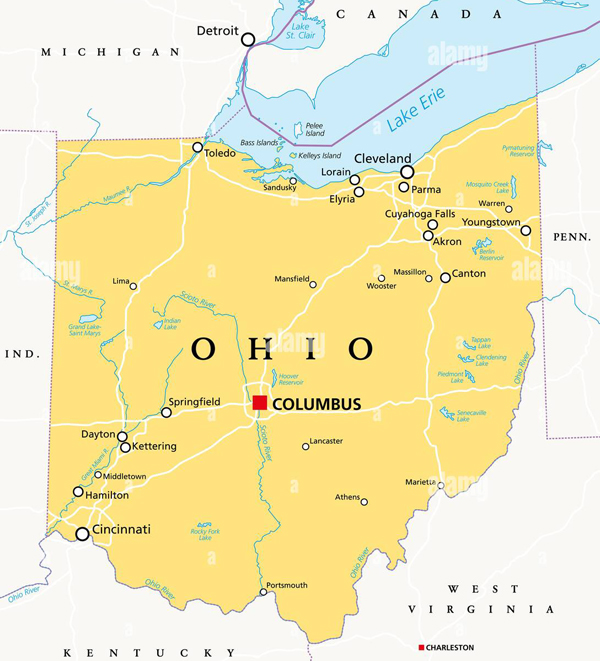us news
കോവിഡ് 19 : ഇറ്റലിയില് മരണസംഖ്യ 1000 കടന്നു, റോമില് പള്ളികളും കടകളും അടച്ചു

കൊറോണ വൈറസ് ബാധമൂലം ഇറ്റലിയില് മരണം 1000 കടന്നു. യൂറോപ്പില് ഏറ്റവും കൂടുതല് പേര്ക്ക് കൊറോണ ബാധിച്ച ഇറ്റലിയില് വ്യാഴാഴ്ച മാത്രം 189 മരണങ്ങളാണ് റിപ്പോര്ട്ട് ചെയ്തത്. ഇതോടെ മരണസഖ്യ 1016 ആയി.
രോഗം സ്ഥിരീകരിച്ച കേസുകള് 15,112 ആയി ഉയര്ന്നു. നേരത്തെ 12,462 പേര്ക്കാണ് രോഗം സ്ഥീരീകരിച്ചിരുന്നത്. ഫെബ്രുവരി 21ന് രാജ്യത്തിന്റെ വടക്കന് പ്രദേശമായ ലാംബാര്ഡില് രോഗം സ്ഥിരീകരിച്ച ശേഷം ഇതാദ്യമായാണ് ഇത്രയുമധികം പേര്ക്ക് ഒരു ദിവസം രോഗം സ്ഥീരീകരിക്കന്നത്.
രോഗം പടരുന്നത് തടയാന് സര്ക്കാര് കൂടുതല് നിയന്ത്രണങ്ങള് ഏര്പ്പെടുത്തി. ഭക്ഷ്യവസ്തുക്കളും മരുന്നുകളും വില്ക്കുന്ന കടകള് ഒഴികെ ഹോട്ടലുകളും ബാറുകളുമടക്കം എല്ലാ കടകളും പൂട്ടാന് സര്ക്കാര് ഉത്തരവിട്ടു.
രോഗ്യവ്യാപനം രൂക്ഷമായ സാഹചര്യത്തില് റോമിലെ എല്ലാ കത്തോലിക്ക പള്ളികളും അടച്ചിടും. ആധുനിക കാലഘട്ടത്തില് ഇത്തരം അസാധാരണമായ നടപടി ഇതാദ്യമായാണ്. ഇതോടെ 900ഓളം പള്ളികളാണ് റോമില് പൂട്ടുന്നത്.
us news
തങ്ങള് വിശ്വസിക്കുന്നത് ദൈവകൃപയില്, അവിടുത്തെ ഹിതം നിറവേറ്റുവാന് ആഗ്രഹിക്കുന്നു : യുഎസ് വൈസ് പ്രസിഡന്റ് വാന്സ്

ന്യൂയോര്ക്ക്: ദൈവത്തിന്റെ കൃപയിലാണ് തങ്ങൾ വിശ്വസിക്കുന്നതെന്ന സാക്ഷ്യവുമായി അമേരിക്കന് വൈസ് പ്രസിഡന്റ് ജെഡി വാന്സ്. ഫെബ്രുവരി 20-ന് മേരിലാൻഡിലെ നാഷണൽ ഹാർബറിൽ നടന്ന 2025 കൺസർവേറ്റീവ് പൊളിറ്റിക്കൽ ആക്ഷൻ കോൺഫറൻസിൻ്റെ (CPAC) പ്രധാന വേദിയിലെ അഭിമുഖത്തിനിടെയാണ് അദ്ദേഹം ഇക്കാര്യം പറഞ്ഞത്. ദൈവത്തിൻ്റെ കൃപയിൽ തങ്ങള് വിശ്വസിക്കുന്നുവെന്നും അവിടുത്തെ ഇഷ്ടം നിറവേറ്റുവാന് തങ്ങൾ പരമാവധി ശ്രമിക്കുന്നുണ്ടെന്നും വാൻസ് പറഞ്ഞു.
ധാർമ്മിക തത്വങ്ങളുടെ ഒരു കൂട്ടം മാത്രമല്ല ക്രൈസ്തവ വിശ്വാസത്തിൻ്റെ അടിസ്ഥാനം, മറിച്ച് വിശ്വാസമാണ്. ദൈവപുത്രൻ മനുഷ്യനായിത്തീർന്നു, അവൻ മരിച്ചവരിൽ നിന്ന് ഉയിർത്തെഴുന്നേറ്റു എന്നതാണ് ക്രൈസ്തവ വിശ്വാസത്തിൻ്റെ അടിസ്ഥാനം. ഇതില് നിന്ന് മനസിലാക്കേണ്ട പാഠങ്ങളില് ഒന്ന്, മരണത്തെ ഭയപ്പെടേണ്ടതില്ല എന്നതാണ്. ഒരാളുടെ ജീവൻ നഷ്ടപ്പെടുക എന്ന് പറയുമ്പോള് പ്രധാനമായി ഒരാളുടെ ആത്മാവ് നഷ്ടമാകുമെന്ന് ഞാൻ കരുതുന്നു.
ഗർഭധാരണ കേന്ദ്രങ്ങളെ പിന്തുണച്ചും, കുടുംബങ്ങളെ വളർത്തിയെടുക്കാൻ ആളുകൾക്ക് താങ്ങാനാകുന്ന ചെലവുകൾ കുറയ്ക്കുന്നതിനുള്ള നയങ്ങൾ നടപ്പാക്കിയും, ഭ്രൂണഹത്യയെക്കുറിച്ചുള്ള ധാരണകൾ മാറ്റിയും, ജീവന് തിരഞ്ഞെടുക്കാൻ ആളുകളെ പ്രോത്സാഹിപ്പിച്ചും ജീവന്റെ സംസ്കാരം മുന്നോട്ട് കൊണ്ടുപോകാമെന്നും വാൻസ് അഭിമുഖത്തില് പറഞ്ഞു. പ്രസിഡൻ്റ് ഡൊണാൾഡ് ട്രംപിനെ “അമേരിക്കൻ ചരിത്രത്തിലെ ഏറ്റവും പ്രോ-ലൈഫ് പ്രസിഡൻ്റ്” എന്ന് വാൻസ് വിശേഷിപ്പിച്ചു. അടിയുറച്ച കത്തോലിക്ക വിശ്വാസിയായ വാന്സ് ഭ്രൂണഹത്യയെ അതിശക്തമായി എതിര്ക്കുന്ന നേതാവ് കൂടിയാണ്.
കടപ്പാട് :പ്രവാചക ശബ്ദം
U.S. Vice President JD Vance advocated for government policies and cultural values that encourage Americans to “choose life” and “start families” during an interview on the main stage of the 2025 Conservative Political Action Conference (CPAC) on Feb. 20 in National Harbor, Maryland.
“[People need to] stop thinking about babies as inconveniences to be discarded,” Vance said in a Thursday morning interview with Mercedes Schlapp, a senior fellow at the American Conservative Union Foundation and the wife of ACU chairman and CPAC organizer Matt Schlapp.
“We’ve got to start thinking of them as blessings to cherish,” Vance said.
During the interview, Vance noted that the United States Supreme Court decision to overturn Roe v. Wade completely changed the abortion debate in the country by allowing the “will of the people to speak on the life issue” and removing it from “unelected bureaucrats” and “unelected judges.”
Vance suggested advancing a culture of life by supporting pro-life pregnancy centers, enacting policies to bring costs down so people can afford to raise families, changing perceptions about abortion, and encouraging people to choose life.
“Maybe they’ll start thinking of babies as the blessings that we all know that they are,” Vance said.
Vance referred to President Donald Trump as the “most pro-life president in American history” for nominating three of the justices who joined the majority opinion to overturn Roe v. Wade. However, he did not address the concerns pro-life advocates have raised with Trump’s recent executive order to expand and reduce the costs of in vitro fertilization , a fertility treatment in which human embryos are routinely destroyed.
Discussing his faith, the vice president, who is a convert to Catholicism, described himself as “very pro-life” and “a devout Christian.”
I just marvel at how real, and exceedingly impressive this guy @JDVance is. We are so blessed to have him as our VP.
“We put our faith in God above, we put our faith in the grace of God, and we try our best to do his will,” Vance said.
Vance discusses immigration, the economy, and energy
During the interview, Vance said the 2024 election gave Trump a “historic mandate on a few issues,” specifically on his efforts to deport immigrants who entered the country illegally, his plans to expand domestic energy and improve the economy, and his actions to reduce waste, fraud, and abuse within the government.
“The American people gave us a window to save the country and that’s exactly what we’re going to do,” the vice president said.
Vance spoke about Trump’s deportation efforts, his restrictions on border crossings, and his decision to designate drug cartels as foreign terrorist organizations. He said his message to drug traffickers is for them to “get the hell out of our country.”
“Your free ride is over because President Trump is back in the Oval Office,” Vance added.
The vice president said Trump intends to “unleash American energy” with policies such as more drilling for oil on American land. This, he said, will “do more than anything” to help the economy because high costs of fuel increase costs for other things.
He also said Trump will ensure “other countries stop taking advantage of us,” extend his tax cuts, and end taxes on tips. He praised the work of the Department of Government Efficiency (DOGE) to stop “wasting [taxpayer money] on garbage.”
“We want your children and grandchildren to be able to raise a family in security and comfort in the country we all love,” Vance said.
Schlapp’s interview with the vice president kicked off CPAC’s three-day conference. Other figures scheduled to speak at the annual event include Trump, Tesla CEO Elon Musk, Republican lawmakers and administration officials, foreign leaders, and various conservative media personalities.
http://theendtimeradio.com
us news
Bible Lessons for School Kids Are Shining Hope in Challenged Cities

Johnstown, Pennsylvania, a city once thriving as a booming steel town, now faces significant economic challenges, including one of the nation’s highest poverty rates. Yet, in the midst of hardship, faith-based programs are stepping in to inspire the next generation, offering truth, purpose, and hope for the future.
The view here in Johnstown is excellent—it’s a city with a rich past, but it has fallen on some difficult times. That includes a series of devastating floods, beginning with the infamous 1889 disaster. Then the economy took a serious downturn after Bethlehem Steel pulled out, and now, in its wake, there’s a lingering sense of hopelessness.
But even a city in a dark valley can shine a light. Programs like Bible2School are bringing faith to the next generation, teaching children about Jesus and instilling a sense of purpose.
“People kind of expect bad things,” says Pastor Doug Black of Liberty Grace Church. “They’ve grown up in this generational expectation that nothing good’s going to happen in Johnstown. So, it’s hard to give them hope because it’s not what they’ve experienced.”
Local pastors are meeting weekly for prayer, seeking spiritual renewal for their city. This week, they gather on a rooftop, standing in the gap for Johnstown. “God, the gospel is good news, Lord,” prays Pastor Terry Knipple. “The city of Johnstown is struggling, and they need good news.”
Their prayers may be finding an answer in the next generation. While student engagement can be a challenge for public schools, children in Johnstown are eagerly skipping lunch and recess to learn about the Bible through Bible2School.
“And who or what is the rock? That firm foundation? What does that rock represent?” asks a teacher in one of the classes.
“Jesus! The Bible!” the students respond enthusiastically.
“So many of the kids have never been told that Jesus loves them,” says Stacy Novak, Executive Director of Bible2School Laurel Highlands. “We have conversations with them, ‘Do you know that you are valued, and do you know you are loved?’ It’s like they’re hearing this for the very first time.”
Bible2School, a nonprofit organization, offers off-campus Bible classes to students in grades two through four in an area where less than 20% of residents regularly attend church. The program has seen remarkable growth, expanding from 82 registered students in 2018 to 850 today—an increase of 900 percent.
“We know a handful of families who’ve started going to church as a result of their children participating,” Novak says. “So, it doesn’t just reach the children. It reaches their siblings, their parents, grandparents.”
For students like Anhori, the program is life-changing. “It’s helping me learn more about Jesus and God and how I can grow closer to Him,” she says, telling CBN News her family is thinking about finding a church.
Katie Green, Johnstown Site Director for Bible2School, knows the struggles of the community firsthand. Growing up in a single-parent household, she relates to the challenges many of these children face. “I have always felt very strongly that within our program, we have little Davids and little Esthers—that God is rising up for a time like this,” Green says.
Yet, for many of these children, the challenges continue after school. Unstable housing, hunger, and loneliness are realities for many families. That’s where New Day, another faith-based program, steps in.
“I can tell you the kids are their spiritual leaders in their households,” says Chris Plaza, leader and facilitator of New Day’s afterschool children’s programming. “We have a lot of parents who can’t read or write—so it’s almost like their children are their educators.”
New Day provides a safe space for children after school, offering a warm meal, the gospel message, and time together. Without it, many kids would end up on the streets.
“I’m excited about Johnstown,” says Pastor Ray of Journey Church. “For years, everybody was down on it because of the drugs, the lack of jobs, things like that. And it was all just gloom and doom. I thought, why not Johnstown? Why can’t we be the epicenter of revival for our country and for our state?”
In a city scarred by economic setbacks and natural disasters, Bible2School and New Day stand out as beacons of hope. With each prayer and each family touched, a new layer is added to this young generation’s foundation of faith.
“We believe this rooftop is our watchtower,” says Josh Knipple of New Day. “Seeing what God sees in the city, seeing what’s to come… Instead of seeing poverty, we see hope.”
As the children pray, “For thine is the kingdom, the power, and the glory… forever and ever—amen,” it’s clear that in Johnstown, faith is lighting the way to a brighter future.
Sources:CBN News
us news
Nearly 2,000 Students Choose Christ in 1 Night at Ohio State: ‘God Is Moving in This Generation’

Thousands of college students gathered at Ohio State University on Tuesday night to seek the hope that’s found in the gospel of Jesus Christ, and nearly 2,000 of them made decisions to give their hearts to God.
It was the second massive revival event of 2025 organized by the Unite US movement, and this time students braved sub-freezing temperatures down in the teens to get baptized in the backs of U-Haul trucks.
“We’ve been in awe of how God has already been moving on this campus over the past year, and He met us here again tonight,” Unite US said in a social media post. “Over 6,500 students gathered in The Schott to lift the name of Jesus and almost 2,000 responded to the altar call – experiencing the freedom only He can bring.”
“God is moving in this generation, and we know that He’s just getting started!” the post exclaimed.
Tonya Prewett, the founder and visionary behind Unite US, also posted to Instagram saying, “What a night at The Ohio State University! …close to 2,000 students made a decision to go all in with Jesus! I am in awe of how God is moving on college campuses!”
The Ohio State revival follows a Unite US outreach held last week at the University of Kentucky where more than 2,000 students gave their lives to Jesus Christ and many were baptized as well.
The next Unite US outreach will be held at Purdue University in Indiana on March 5. Since September of 2023, the ministry’s events have reached more than 70,000 college students across multiple campuses.
Sources:CBN News
-

 Travel9 months ago
Travel9 months agoയാക്കൂസ കരിഷ്മ:ഓല സ്കൂട്ടറിനേക്കാൾ വിലക്കുറവിൽ കുഞ്ഞൻ കാർ; സിറ്റി യാത്രകൾക്ക് ഇനി ഇവൻ മതിയാവും
-

 Movie3 months ago
Movie3 months agoFor KING + COUNTRY Stars’ Big Plan to Bring Message of Jesus, ‘Redemption of Humanity’ to People Across America
-

 National12 months ago
National12 months ago300,000-Member Indian Church to Plant 40 More Megachurches
-

 National12 months ago
National12 months agoനെയ്തേലിപ്പടി ക്രൂസേഡിന് അനുഗ്രഹീത സമാപ്തി
-

 Tech8 months ago
Tech8 months agoചിത്രങ്ങൾ എഡിറ്റ് ചെയ്യാം; വാട്സ്ആപ്പിലെ ‘നീല വളയം’ സ്മാർട്ടാകുന്നു, കാര്യമായ മാറ്റങ്ങൾ
-

 Movie3 months ago
Movie3 months agoFor KING + COUNTRY Stars’ Big Plan to Bring Message of Jesus, ‘Redemption of Humanity’ to People Across America
-

 Movie11 months ago
Movie11 months agoActor Ryan Phillippe ‘Craving’ Relationship With God After Movie About Christian Missionary
-

 Articles9 months ago
Articles9 months ago8 ways the Kingdom connects us back to the Garden of Eden
























